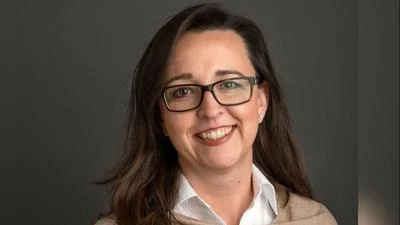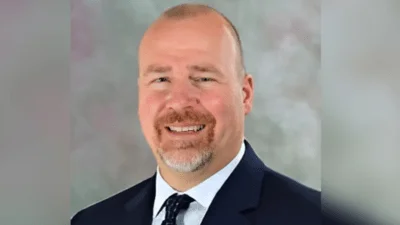Gov. Tony Evers | Gov. Tony Evers Official U.S. Governor headshot
Gov. Tony Evers | Gov. Tony Evers Official U.S. Governor headshot
EAU CLAIRE — Gov. Tony Evers today, together with Wisconsin Department of Workforce Development (DWD) Secretary Amy Pechacek, Wisconsin Department of Health Services (DHS) Deputy Secretary Deb Standridge, Wisconsin Office of the Commissioner of Insurance (OCI) Commissioner Nathan Houdek, and other agency officials and staff, joined local leaders in Eau Claire to provide updates on the Evers Administration’s rapid response and other efforts to support local workers and community members affected by the recent announcement of HSHS and Prevea Health’s decision to close several locations across Western Wisconsin. According to DWD, these closures are estimated to impact approximately 1,400 workers, among others, in the surrounding region. A photo of the meeting is available here.
“The recent announcement of closures across the HSHS and Prevea health systems has been a shock to the community and folks all across this region, disrupting the lives of about 1,400 workers and their families as well as many others concerned about continued access to healthcare in the local and regional areas,” said Gov. Evers. “My administration and I have gotten to work quickly facilitating conversations with Chippewa Valley leaders, and we are in frequent communication with healthcare providers in the region to deliver assistance on multiple fronts.
“Our administration is working diligently to help connect affected workers with jobs, ensure patients have uninterrupted access to care, and coordinate with insurers to make sure that people retain continuous, affordable insurance coverage. We’re going to keep working to find immediate and long-term solutions to help address these challenges with every tool and resource that we have at the state level.”
To help affected workers connect with jobs, DWD and the West Central Works Workforce Development Board will host community job fairs with healthcare and other regional employers in Eau Claire on Wed., Feb. 7, 2024, from 10 a.m. to 6 p.m. at The Florian Gardens Conference Center, 2340 Lorch Ave., Eau Claire, WI, 54701, and Tues., Feb. 20, 2024, from 10 a.m. to 6 p.m. in the Casper Conference Center and Student Commons of the Chippewa Valley Technical College – Business Education Center, 620 W. Clairemont Ave., Eau Claire, WI, 54701. The job fairs will be open to the public and will include more than 80 employers with representation across all economic sectors. More information about the job fairs is available here. Additional services will be made available via DWD’s mobile career labs in locations that are convenient for affected employees, with a schedule to be announced in the coming days.
“There are hundreds of job postings in healthcare right now in the region, yet we know that these impending layoffs are incredibly stressful and challenging,” said DWD Secretary Pechacek. “Along with the West Central Works Workforce Development Board and our other state agency partners, we want to do everything we can to make sure affected workers take advantage of the broad spectrum of tools that are available. Through the coordinated rapid response efforts, this support includes assistance with job search and placement, unemployment insurance application assistance, interview preparation, career counseling, and navigation of child care and health insurance information, among other resources.”
“The Department of Health Services will continue to work with healthcare providers throughout the region to open up access to patients of HSHS and Prevea,” said DHS Deputy Secretary Standridge. “We are especially concerned about patients with ongoing care needs, pregnant women, and those with mental health, behavioral health, and substance use disorders. These issues are not going away, and to address the urgent needs of patients in the Chippewa Valley, we are working with other regional providers, including the Marshfield and Mayo Clinic systems, to open up access to the greatest extent possible.”
OCI Commissioner Houdek emphasized that the insurance industry also must be part of the solution.
“OCI staff are working to make sure that people are not being charged extra for going out of network when necessary due to these closures,” said OCI Commissioner Houdek. “We want to see a smooth transition, and we have a team of people dedicated to answering questions and handling complaints regarding access and charging.”
Monday’s roundtable drew more than 50 participants from the Eau Claire and Chippewa Valley regions, including higher education leaders, area economic development organizations, and other workforce system partners. The discussion also included local and state elected officials, including State Rep. Jodi Emerson (D-Eau Claire) and Sen. Jeff Smith (D-Brunswick).
The West Central Works Workforce Development Board has been leading the local rapid response efforts following the notifications filed on January 22 of closures affecting HSHS Sacred Heart Hospital, HSHS St. Joseph’s Hospital Chippewa Falls, and Prevea Clinic Inc. locations in Eau Claire, Chippewa, Barron, Buffalo, Dunn, Price, and Rusk counties, affecting nearly 1,400 workers.
Jon Menz, CEO and senior EO officer at the West Central Works Workforce Development Board, encouraged employers and workers alike to take advantage of the available assistance and upcoming job fairs. Employers and workers interested in participating in the job fair events can contact:
• Employer Contact: Carlene M. Volbrecht, DWD, employment and training specialist, 715-679-5546, Carlene.volbrecht@dwd.wisconsin.gov
• Worker Contact: Yolanda LeCount, operations manager, Workforce Resource Inc., 877-711-9390 ext.1536, lecounty@workforceresource.org
• Additional Contact: Deb Nichols, VP Business Solutions, West Central Works Workforce Development Board, 715-505-5486, dnichols@wdbwcw.org
While not exhaustive, some details regarding the Evers Administration’s ongoing rapid response efforts are available below.
DWD Rapid Response Efforts
• DWD is coordinating rapid response with the local workforce development board. The rapid response support includes assistance with job search and placement, unemployment insurance application assistance, interview preparation, career counseling, and navigation of childcare and health insurance information, among other resources.
• DWD’s rapid response teams are continuing to gather critical information, meet with the affected employees and employers, and identify opportunities to connect affected employees with new opportunities that provide family-supporting wages.
• DWD will be hosting community job fairs to assist affected workers and the general public on February 7 and February 20.
• DWD continues to coordinate with DHS and other state agencies to support continuity of healthcare services in the region.
• Additional services will be made available via DWD’s mobile career labs for affected employees, with a schedule to be announced in the coming days.
DHS Rapid Response Efforts
• DHS has met with both the local leadership and the systemwide leadership of HSHS and Prevea Health, and the department will continue to have regular meetings with these leaders moving forward.
• DHS is facilitating conversations between the leadership of HSHS and Prevea Health and the leadership of other regional healthcare systems, including Marshfield Clinic Health System and Mayo Clinic Health System and is continuing to urge the three systems to increase transparency in their planning and decision-making.
• DHS will continue to monitor EMS, trauma, and crisis response going forward, in addition to ongoing transition and continuity of care planning, including:
• Coordination of an agreement to transfer certain patients from HSHS to Mayo Clinic; and
• Necessary steps to ensure all local OB/GYNs have privileges at all local hospitals so they can continue to provide care locally regardless of the facility at which they are working. This is particularly important given the pre-existing shortages with regard to OB/GYN care in the region.
• DHS’s Bureau of Human Resources has notified employees of the department’s Northern Wisconsin Center, who mostly use Prevea Health and HSHS, and the bureau is working with them to help them find care.
• DHS is conducting outreach to facilities and organizations to encourage them to have a presence at upcoming job fairs in the region, including long-term care facilities, assisted living facilities, DHS-administered facilities, etc.
OCI Rapid Response Efforts
• OCI is in communication with Western Wisconsin insurers about their efforts to maintain access for their policyholders.
• OCI has been in contact with the Wisconsin Department of Employee Trust Funds (ETF) on State Employee Health Plan issues and is awaiting feedback from ETF as they monitor the situation.
ABOUT THE DISLOCATED WORKER PROGRAM
The Dislocated Worker Program provides transition assistance to workers and companies affected by permanent worker layoffs. The rapid response teams help companies and worker representatives develop and implement a practical transition plan based on the size of the layoff event. Types of services include:
• Pre-layoff workshops on a variety of topics, such as resume writing and interviewing, job search strategies, and budgeting;
• Provision of information about programs and resources through written materials and information sessions; and
• Career and resource fairs.
Workers affected by a permanent layoff may also access basic re-employment services at no charge through the state’s Job Centers. Certain services, including training assistance, may be an option for some workers after enrolling in one or more of DWD’s workforce development programs. Additional information on the Rapid Response Team process is available here.
An online version of this release is available here.
Original source can be found here.






 Alerts Sign-up
Alerts Sign-up